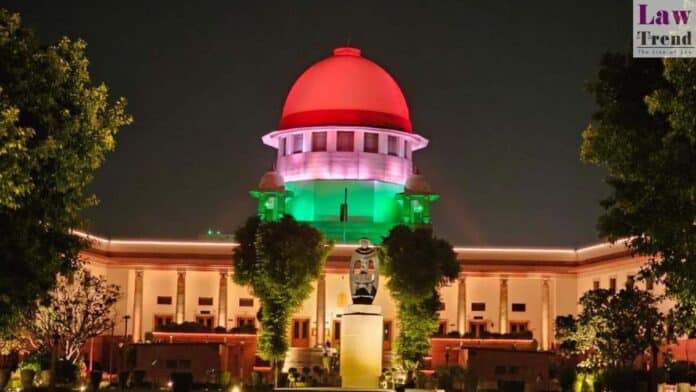The Supreme Court of India on Wednesday dismissed a plea from Swamy Shraddananda, a convict serving a life sentence for the murder of his wife, refusing to re-examine the verdict that sentenced him to imprisonment for life without the possibility of release.
The plea, argued before Justices B.R. Gavai, P.K. Mishra, and K.V. Viswanathan, challenged the constitutionality of the life sentence on the grounds of violating fundamental rights under Articles 14 (equality before the law) and 21 (protection of life and personal liberty) of the Constitution. However, the bench maintained that the sentence was within legal bounds, noting that such a sentence has been upheld by a five-judge Constitution bench.
Swamy Shraddananda, 84, whose real name is Murali Manohar Mishra, is linked to a high-profile case involving the murder of his wife, Shakereh Khaleeli, granddaughter of Sir Mirza Ismail, a former Dewan of Mysore. He sought to overturn a July 2008 Supreme Court decision which substituted the death penalty with a life sentence, stipulating that he “shall not be released from prison for the rest of his life.”
The court’s decision comes in light of arguments and submissions made by representatives of the state of Karnataka and the complainant. It was brought to the court’s attention that Shraddananda has already made a representation to the President of India, under the provisions of Articles 72 and 161, which pertain to presidential and gubernatorial pardoning powers.
Shraddananda had also filed a separate writ petition on September 11, seeking his release on grounds of continuous incarceration without parole or remission, which was similarly dismissed by the apex court.
The background of the case involves the disappearance of Shakereh in May 1991, after marrying Shraddananda in 1986. Her remains were found buried following a confession by Shraddananda under intense interrogation in 1994. He was subsequently convicted in 2005 by a trial court and sentenced to death, a decision later upheld by the Karnataka High Court.
Ultimately, when the case reached a two-judge Supreme Court bench, there was disagreement over the sentence, leading to a three-judge bench determining the final penalty of life imprisonment in 2008.




